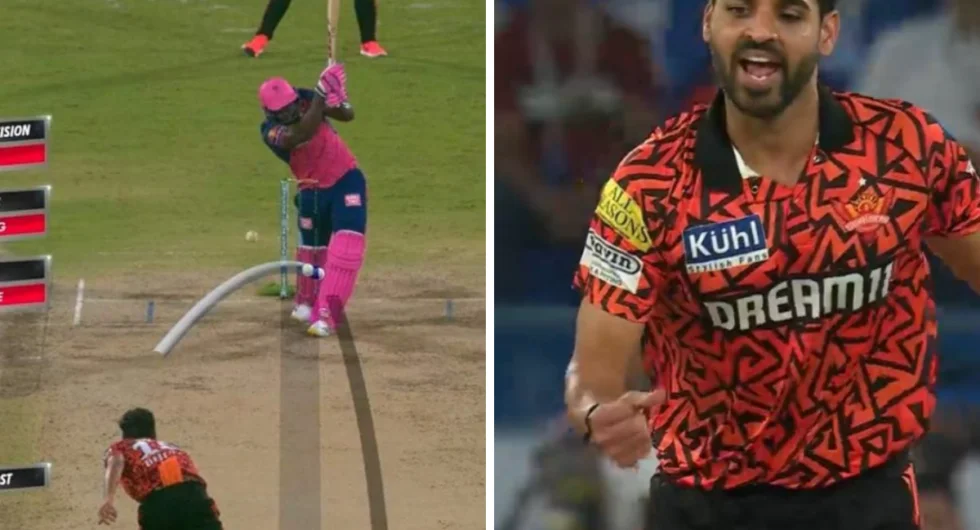Discover how the IPL regulation loophole was exposed during SRH’s dramatic win over RR. Explore the controversy and proposed solutions now!

Unveiling a Glaring Oversight: The LBW Law and DRS Monitoring
During the intense clash between Sunrisers Hyderabad (SRH) and Rajasthan Royals (RR) in the 2024 Indian Premier League (IPL), a pivotal moment exposed a critical flaw in the cricketing regulations, particularly concerning the lbw law and its monitoring with the Decision Review System (DRS).
The Crucial Moment: Last-Ball Drama
As the match reached its climax, Rajasthan Royals found themselves needing two runs off the final delivery, bowled by the experienced Bhuvneshwar Kumar. In a high-pressure situation, Kumar delivered a full toss aimed at the leg stump, striking the pads of batsman Rovman Powell. The on-field umpire swiftly adjudged Powell out, prompting an immediate review from the batsman.
The Loophole Uncovered
Despite Powell’s review, the TV umpire upheld the on-field decision, resulting in a narrow one-run victory for SRH. However, astute viewers were quick to identify a significant loophole in the regulations. Even if the lbw decision had been overturned, and Powell and Ravichandran Ashwin had managed a single off the last ball, SRH would have still clinched victory.
Understanding the Regulation
Article 3.7.1 in the IPL Playing Conditions states that if an original decision of ‘Out’ is changed to ‘Not out’ following a Player Review request, the ball remains dead as per the original decision. This means that any runs accrued after the initial ‘Out’ decision are not counted, regardless of the subsequent ruling.
Implications and Controversies
This loophole raises significant concerns, especially in crucial matches where a wrongful lbw decision could alter the outcome. Even if a batsman is wrongly given out and manages to score runs off the delivery, those runs will not be counted, potentially leading to controversy and dissatisfaction among teams and fans alike.
Proposed Solutions
Following the revelation of this loophole, there has been a surge in discussions among cricket enthusiasts, with numerous suggestions put forth to rectify the issue and uphold the principles of fair play. One proposed solution involves revising the existing regulations to permit runs scored after a reversed lbw decision. Additionally, there are calls for implementing stricter monitoring mechanisms for umpires to ensure accurate decision-making.
Former South African pacer Dale Steyn also weighed in on the matter following the match, proposing the adoption of rules akin to those in baseball to eliminate confusion in such scenarios. In his statement, Steyn advocated for treating the ball as live until play has ceased, allowing the batting team to continue running and the fielding team to persist in their fielding duties. This approach would enable addressing lbw or caught-off-no-ball situations post-play. As Steyn articulated, “Out if out, runs awarded if LBW or caught was not out.”
Conclusion
The incident during the SRH vs. RR match highlights the importance of regularly reviewing and refining cricketing regulations to maintain the integrity and fairness of the sport. Identifying and addressing loopholes is essential to uphold the spirit of cricket and ensure equitable outcomes in all matches.